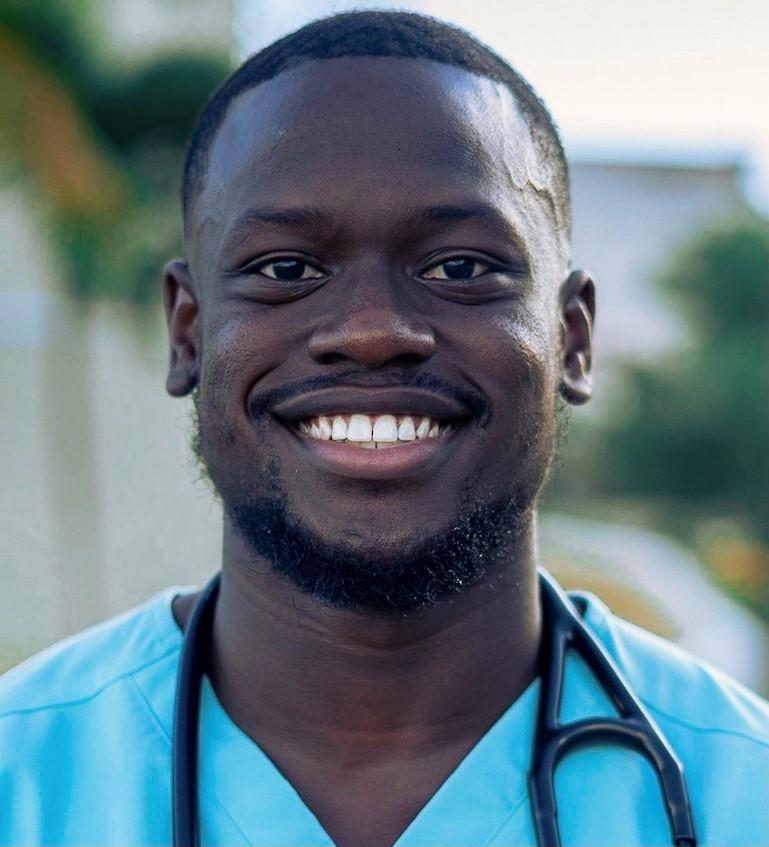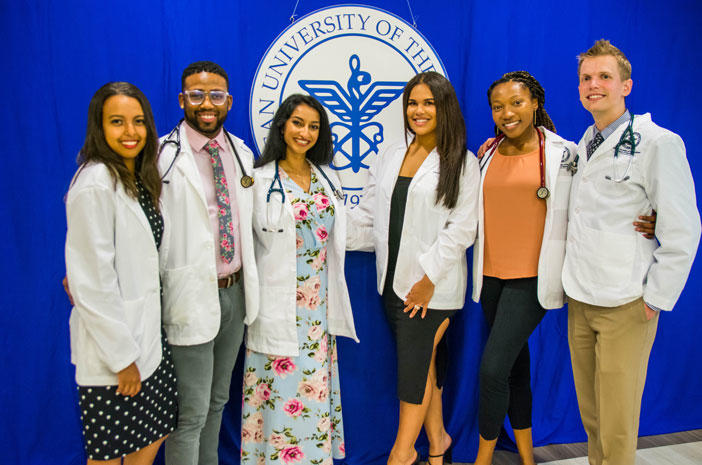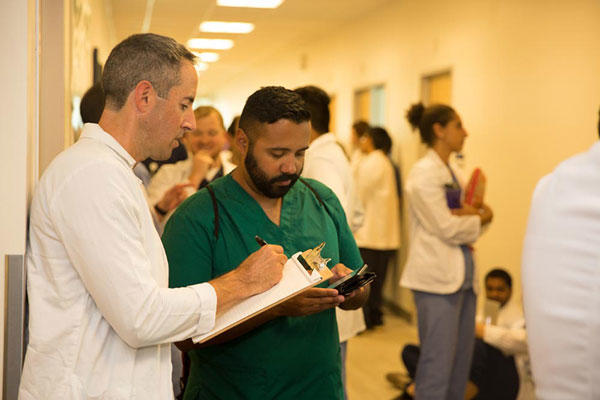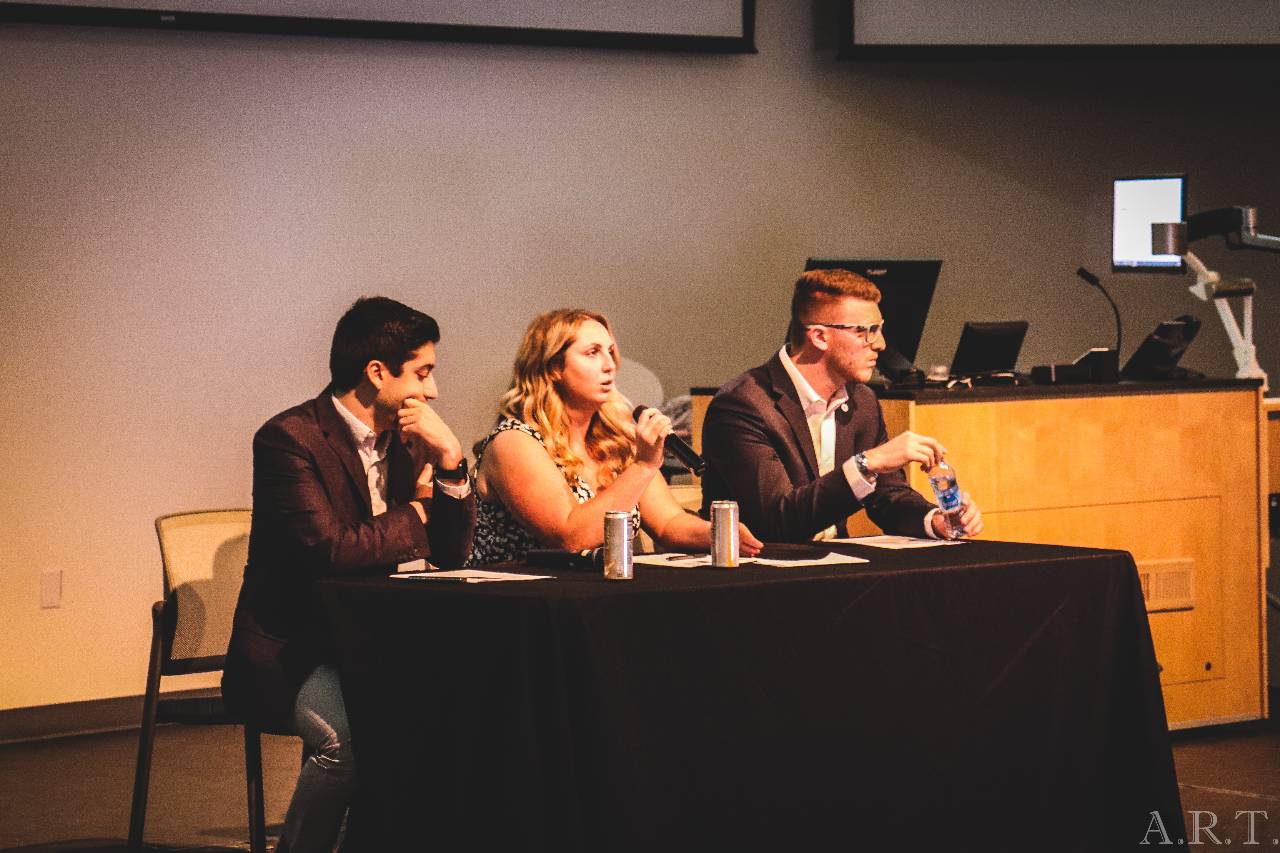
“Show of hands: How many of you think of clinicals as this mystical land that you don’t know anything about?”
Hands began to rise as fourth-year student and Clinical Student Government Association (CSGA) Director Sean Clayton surveyed the room during a panel last Friday. Just a few years ago, Sean had been in that same position. From a foundational level, he knew what clinicals was about but couldn’t help but wonder what life was like away from Sint Maarten—in a new environment with new people.
“That’s why we’re here,” he said, speaking from AUC’s auditorium stage alongside his CSGA co-directors, Adrianna Gatt and Soubhi Alhayek. “We noticed a gap in student-led knowledge and communication between medical sciences and clinical sciences. And so, our mission today is to bridge that gap to better prepare you for clinical rotations.”
For the next two hours, Sean, Adrianna, and Soubhi recounted their clinical experiences to an auditorium full of first and second year students. The “Day in the Life of a Clinical Student” event, organized by the Executive SGA, was part of AUC’s 40th Anniversary Weekend and an effort to strengthen connections between medical and clinical sciences students. It included an in-depth presentation, interactive Q&A, and breakout sessions to discuss the specific sites where students can complete their core rotations and electives.
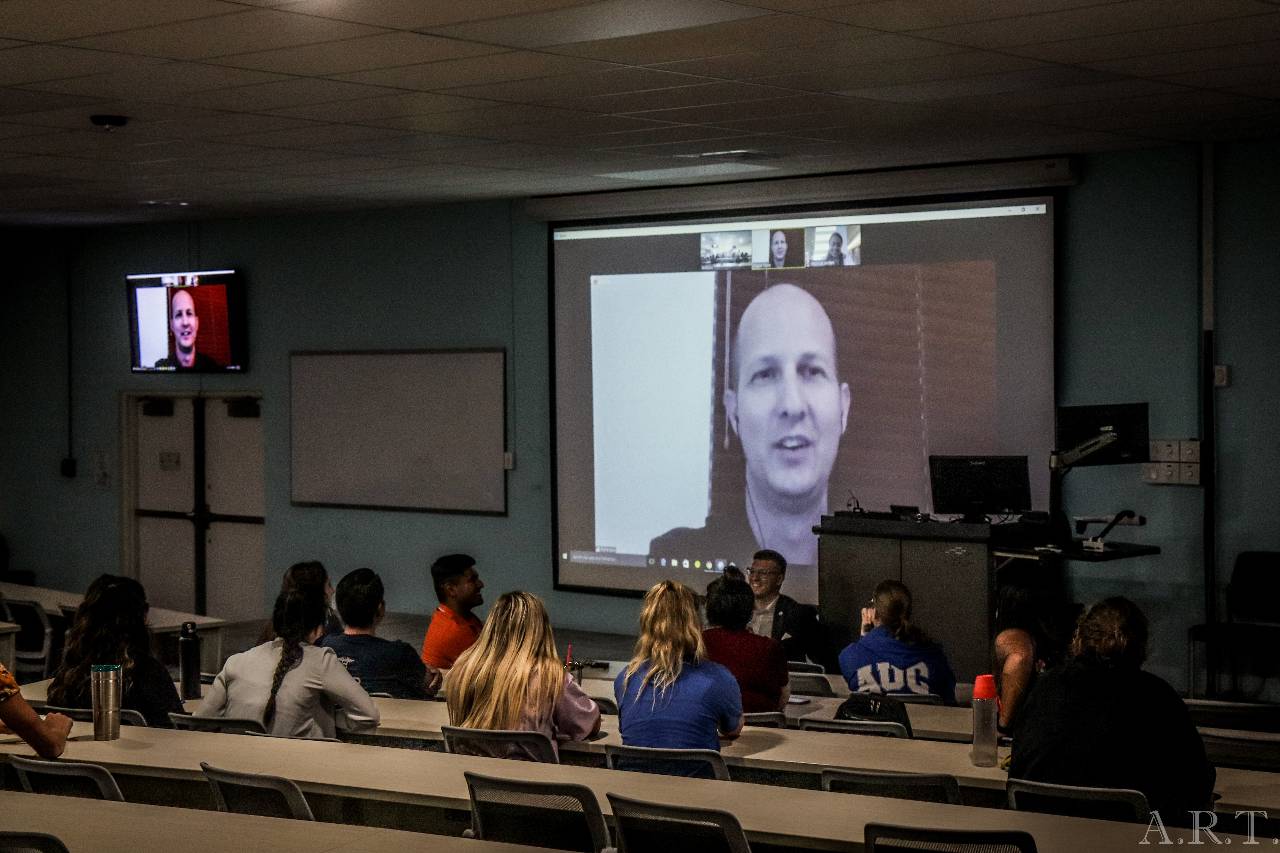
Positioning Yourself for Success during Clinicals
Throughout their panel, Sean, Adrianna, and Soubhi emphasized several key points for medical sciences students to consider ahead of their clinical rotations.
1. Begin mapping your clinical schedule in medical sciences.
Although clinicals can feel far away, it is never too early to start thinking about your rotations and how you want to schedule your clinical time. Start with the basics: What are you looking for in a clinical site? What affiliated sites are particularly strong in your desired medical specialty? Are you interested in a particular region? What sites are available for your particular cohort? Are there any time constraints you need to take into consideration? What educational opportunities do you want to have? Are there financial constraints that you/your family need to consider?
Different hospitals have different strengths, so mapping your wants and needs early is a great way to align your interests with a schedule. But remember to be flexible and consider alternate options and schedules that still afford you the opportunities that you want. While AUC will try to place you at your preferred site, it is not a guarantee.
2. Pick strategic times to schedule the cores that most interest you.
If you are already leaning toward a specific specialty, try not to schedule that one as your first clinical rotation. Your first rotation should really be about learning the hospital setup, understanding the EMR system, and grasping how to handle rounds in general. Save your desired specialty—or specialties—for at least your second or third core rotations.
3. Be prepared…but also be ready to be unprepared.
Every medical student who sets foot in the hospital for the first time faces similar anxieties and stressors. It’s normal to feel like a fish out of water. While there are a few tangible things that you can do to prepare for your first rotation, it’s equally important to accept that you are not going to know a lot of things. In fact, being a physician means embracing the idea that you will be continually learning for the rest of your life.
One thing that you are supposed to know: Do not show up to the hospital without a few critical items. First, make sure to dress in business casual clothing with your White Coat. Second, pack your stethoscope, clipboard (consider a foldable clipboard that can fit in your White Coat pocket), pen and paper, a watch, and an iPad mini (optional). At the very least, you now look the part!
4. Motivate yourself to be proactive during rotations.
A majority of clinicals is self-driven and you will need to be self-motivated in order to succeed. Hold yourself to a higher standard by being that student who gets to the hospital early, pre-rounds on patients, writes notes, and asks questions. If your attending is amenable, engage him or her in questions and ask for more responsibility. You will only get more experience if you show enthusiasm and proactively seek out opportunities.
5. Start thinking about high-stakes exams now (in medical sciences).
As a clinical student, you will encounter several high-stakes exams that will play an important role in your residency application. The first is the National Board of Medical Examiners (NBME) Shelf Exam, which is a series of 110-question tests that you will take at the end of each core rotation. These exams are pass or fail but should not be taken lightly. Studying hard and performing well on these exams directly correlates with success on the USMLE Step 2 CK Exam.
Speaking of, your next big test will be the USMLE Step 2 Exam. Step 2 has two components: the Clinical Skills (CS) Exam and the Clinical Knowledge (CK) Exam.
The USMLE Step 2 CS is similar to your Introduction to Clinical Medicine (ICM) course and will test your ability to interview patients, form a differential diagnosis, and determine the next steps. These encounters will occur across 12 different stations in a USMLE-sanctioned testing site. To prepare, start now by doing well in your medical sciences ICM courses. During clinicals, make time with patients a priority. Interview as many patients as possible and discuss your findings with residents and attendings. Each encounter is an opportunity to get more comfortable and familiar with the patient interview.
The USMLE Step 2 CK Exam is a more clinically-focused version of the USMLE Step 1 Exam. Instead of answering questions about diseases, this exam will test your knowledge about the next step in disease management. Preparation for the Step 2 CK begins early in your medical sciences. Students who do well in their didactic courses will do better on the USMLE Step 1 Exam and consequently the USMLE Step 2 CK. If you understand the core pathophysiology of a disease, you will be better equipped to translate that into medicine.
6. There is a world of study resources out there…use them!
The first day of your rotation should also be the first day you start studying for that Shelf Exam. The good news is there is a wealth of study resources out there to help keep you on track for each exam!
We recommend sticking with two to three resources per rotation. There are books specific to each rotation and there are also general resources that cover all of the cores. Many AUC students use the site Online MedEd, which has free 20-minute videos as well as paid study content. Another popular resource is UWorld, which you will use for the entirety of your third year. You should be building your bank of UWorld questions ahead of each Shelf Exam and then resetting and doing it again for your USMLE Step 2 CK Exam. Students can also purchase practice Shelf Exams through the NBME website, which is a great way to practice and assess where you are prior to testing day.
7. Do things now that can positively impact your residency application.
The residency MATCH should be on your mind from the very first day of medical school. Your job is to do whatever you need to do in order to match, which means building out your application materials now.
A large component of your application will be your CV. Don’t wait until the application period to pull this document together. You can start compiling your CV now with relevant experiences—whether that includes medical work during undergrad, involvement with organizations on campus, tutoring work, volunteer efforts with Community Action Day, and so on. All of these are important activities that need to be a part of your CV. As you move through AUC, continually add to and edit that document so it becomes a full and impressive list come time for your application.
Your application should also reflect your involvement in research and your community. Seek out opportunities to do research in medical sciences and take advantage of AUC service-learning programs within the Sint Maarten community. If you are interested in a particular field of medicine, join that professional medical society. Student memberships are often free or deeply discounted and connect you with conference opportunities, networking events, and potential research projects.
8. Prioritize your wellness.
Students who take time for wellness tend to do better in clinicals than those who constantly work and study. Yes, it’s important to study and prepare for those high-stakes exams but it’s also important to decompress and prioritize your health and wellness. Take your off day to watch a show or talk on the phone with friends and family for an hour. Stay on top of your health by meal prepping (not all hospitals have healthy food options), taking the stairs, and scheduling time to sleep. Especially after an overnight shift, you need to make sure you set aside the proper amount of time to rest.
And remember that the CSGA is a resource for all students. Talk with your representative about what you are feeling or what you might need so that he or she can advocate for making that happen. AUC has comprehensive wellness services available and the CSGA will soon be launching a clinical care team to help students as they navigate the clinical years.


